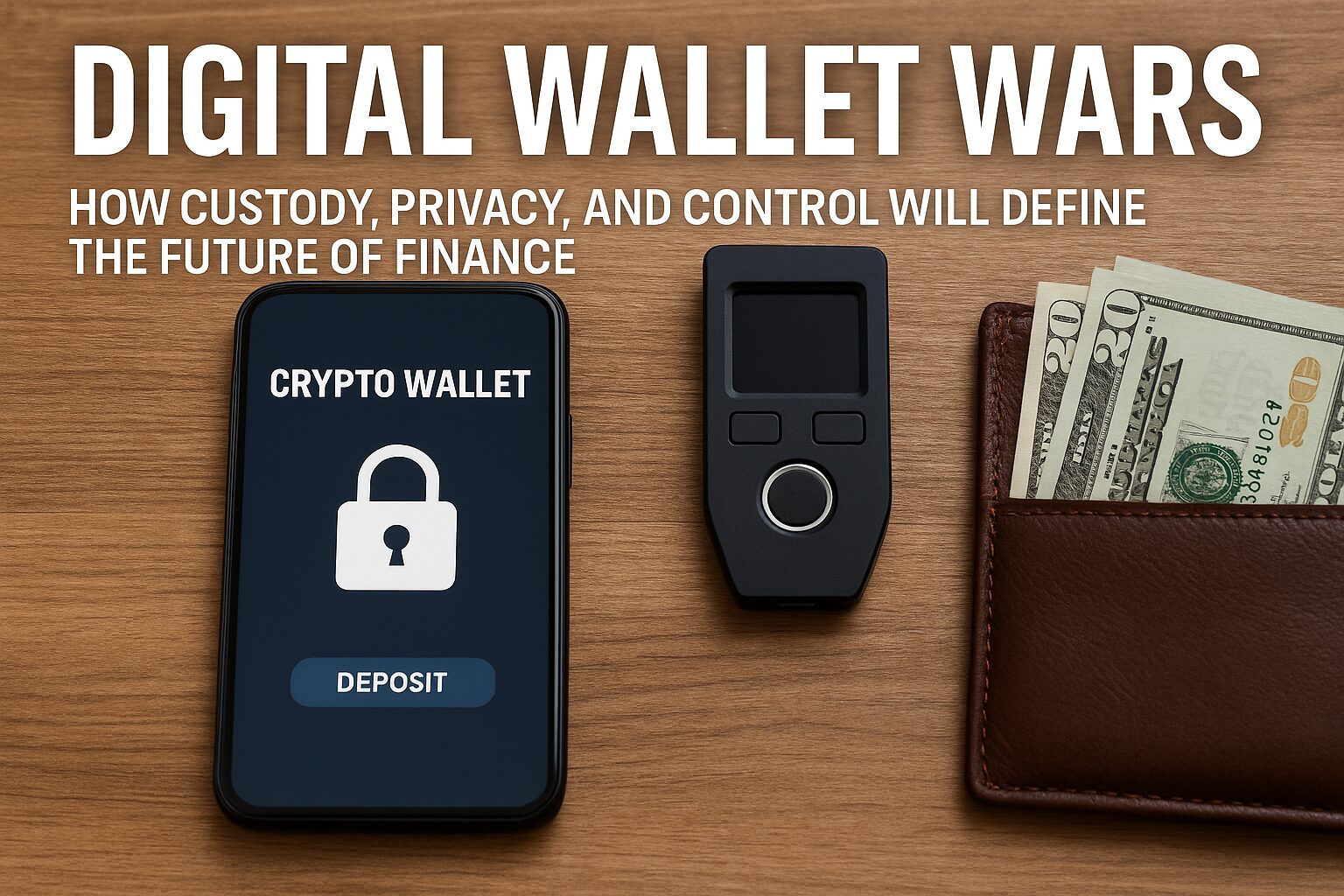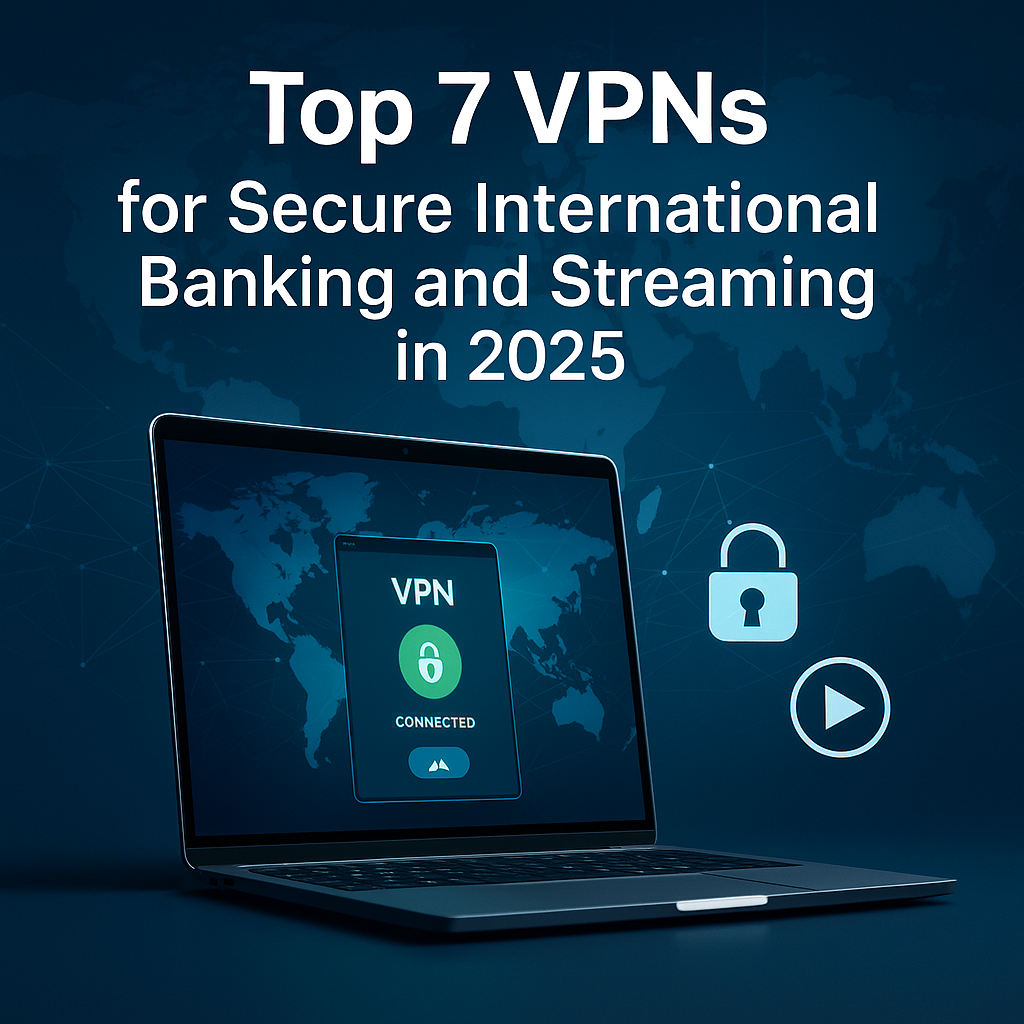How Custody, Privacy, and Control Will Define the Future of Finance
📌 Is Your Crypto Wallet Putting You at Risk?
As governments launch CBDCs and decentralized wallets evolve, the battle over digital custody, privacy, and user control is reaching a boiling point. In this post, we explore the different types of wallets—and how your choice will define your financial freedom in the digital age.
The Hidden Battlefield of Finance
While everyone is talking about Bitcoin, Ethereum, or the rise of CBDCs, few realize that the real war is happening behind the scenes — in your pocket, your browser, and your apps. Welcome to the Digital Wallet Wars, where the winner isn’t necessarily the best currency, but the best control system. The wallet you choose determines who controls your assets, who sees your data, and how free you truly are in the digital age.
Chapter 1: What Is a Digital Wallet?
A digital wallet is much more than just an app to store cryptocurrencies. It’s a gateway to the decentralized (or centralized) financial world. It can:
- Hold stablecoins, NFTs, and even tokenized real-world assets
- Provide access to DeFi protocols
- Facilitate identity management and logins
- Record your transaction history — forever
But not all wallets are created equal. They fall under two broad categories:
- Custodial wallets (controlled by third parties like Binance or Coinbase)
- Non-custodial wallets (like MetaMask or Ledger, where you control your private keys)
Understanding the differences in privacy, security, regulation, and usability between these two types is essential.
Chapter 2: Why Wallets Are Now Political
When governments issue Central Bank Digital Currencies (CBDCs), they don’t just create digital money — they build surveillance infrastructure. The wallet becomes a tool for behavioral control:
- CBDC wallets could include spending restrictions or expiry dates
- They can be integrated with social credit scores or taxation systems
- Governments could freeze wallets of dissidents or flagged users
In contrast, decentralized wallets are pushing back by offering privacy features, interoperability, and multi-chain security. But this fight is not just about tech — it’s about values.
Chapter 3: Custody vs. Control — Who Owns Your Money?
- Custodial wallets are convenient but dangerous. You don’t own your keys — the company does. If the platform is hacked, goes bankrupt, or is forced to comply with regulations, your funds can vanish or be locked.
- Non-custodial wallets put the power — and the responsibility — in your hands. Lose your seed phrase, and it’s game over. But if you’re careful, you become your own bank.
Regulators love custodial wallets. Hackers love careless self-custody. You have to choose between convenience and true ownership.
Chapter 4: Privacy Is the New Gold
Today, most custodial wallets collect your:
- IP address
- Device fingerprint
- Location
- KYC data
- Full transaction history
Some even sell this data to third parties or hand it to government agencies.
Decentralized wallets are trying to integrate privacy-preserving layers:
- Tor routing
- zk-SNARK support
- Decentralized identifiers (DIDs)
- Anonymous transactions on chains like Monero or Zcash
The wallet you use says a lot about how much privacy you value.
Chapter 5: Wallet Wars and Global Politics
Countries are racing to develop national wallets that support:
- CBDCs
- Biometric logins
- Real-time surveillance
- Cross-border payment controls
China’s e-CNY wallet already allows programmable money, and similar experiments are underway in Nigeria, Brazil, and the EU.
Meanwhile, U.S.-based wallets like MetaMask are facing geo-blocking, censorship, and export control issues. The global wallet map is being redrawn based on geopolitical alliances, not just technology.
Chapter 6: Wallet UX – The Trojan Horse of Control
Users don’t choose wallets based on freedom. They choose based on ease of use. The slicker the interface, the more likely you are to give up control.
- Google and Apple Pay are entering the crypto space
- Meta (Facebook) is working on social-integrated wallets
- Many “DeFi” wallets are adding KYC and off-ramping partnerships
Convenience is often a trap. And the companies that make wallets know this.
Chapter 7: Smart Wallets, Smart Contracts — and Smart Surveillance
The future wallets will do more than store coins. They will:
- Automatically allocate your funds
- Limit your spending to certain merchants
- Enforce tax compliance
- Set time-locked usage patterns
- Interact with smart cities and IoT
Smart wallets could become programmable agents of the state or the individual, depending on who builds and controls them.
Chapter 8: Your Wallet, Your Identity
In the coming Web3 world, your wallet won’t just hold assets. It will hold:
- Your credentials
- Your reputation score
- Your health records
- Your work history
- Your AI interaction logs
And just like in Web2, whichever platform controls your identity, controls your freedom. Wallets are the new passports of the digital world.
Chapter 9: How to Choose the Right Wallet Today
To protect your wealth and privacy:
Use non-custodial wallets like Keplr, MetaMask, XDEFI, or Rabby
Avoid wallets that force KYC or location data sharing
Use hardware wallets like Ledger for cold storage
Avoid linking wallets to centralized exchanges
Use wallets that support multi-chain interoperability and privacy chains
Chapter 10: The Real Battle Is Just Beginning
As digital finance replaces physical cash, the war is not between coins, but between control systems. CBDCs, stablecoins, and DeFi tokens are just pieces on the board. The wallet — and who designs it — determines how much freedom, anonymity, and autonomy you retain.
The real smart money today isn’t just about which coin to buy, but which wallet to trust.

